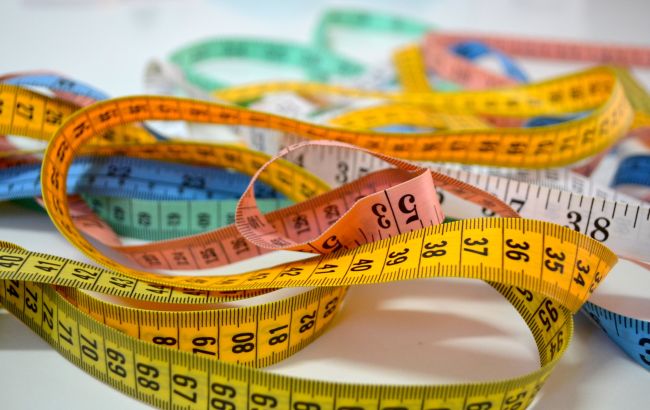
“This was the Aaron and Moshe to whom HASHEM said, “Take the Children of Israel out of Egypt according to their legions.” — Shemos 6:26
After HASHEM commanded Moshe and Aaron to be the emissaries to free the Jewish people, the Torah lays out their lineage. At the conclusion, the Torah repeats the names of Aaron and Moshe, this time in reverse order, with Aaron mentioned before Moshe.
Rashi seems to be bothered by both the repetition of the names and the reversal of their order. He says this comes to teach us that Moshe and Aaron were equal. Even though from this point forward, Moshe would be the leader of the Jewish nation, don’t make any mistake. Aaron was just as great.
The difficulty with this Rashi is that according to all measures, Moshe Rabbeinu was far greater than Aharon. Moshe was the leader of the Jewish nation. He brought the makkos on Mitzrayim. He led the Jewish people out of slavery. He split the Yam Suf. He went up to receive the Torah on Har Sinai. But even more telling, he was the greatest Navi who ever lived.
Prophecy is a manifestation of a person’s spiritual level
The Rambam defines prophecy as a manifestation of spiritual perfection. HASHEM fills every particle of existence, but we have difficulty experiencing His presence because we are covered by layers and layers of physicality.
A Navi is a person of great spiritual accomplishments who spends years further purifying himself until the heavy cloak of physicality no longer blocks his vision. He is then able to experience HASHEM’s presence. The more holy the Navi is, the more clearly he sees HASHEM.
The only human who reached the level of seeing HASHEM with total clarity was Moshe. There never was, nor will there ever be, a person who will reach that level.
So how can Rashi tell us that Moshe and Aaron were equals when clearly Moshe Rabbeinu was on a higher madreigah?
Two systems for measuring the greatness of a person
The answer to this question seems to be that there are two systems for judging a person’s greatness, one is absolute and the other is subjective. When measuring a man based on the absolute standard of greatness in Torah and perfection, Moshe was far greater than Aaron. He towered over any other human ever created. However, there is another system for measuring a person’s success. Based on his capacity, and his potential, how much did he accomplish?
Before each person is born, he is predestined to certain abilities and talents, a particular level of intelligence, and an exact disposition and temperament. At the end of his days, he will be compared to what he could have become. How far did he grow? How much did he accomplish with the tools given to him? This system is subjective. How much of his potential did he fulfill?
Moshe may well have reached 99% of his potential, but so did Aaron. So even though in the absolute sense Moshe was far greater, and others had to treat him as the greatest human being ever, in the subjective sense of reaching one’s capacity, Aaron was his equal, and as such was just as great. That is what the Torah is teaching by exchanging the order of their names.
The Gra – The most painful moment in my existence
The Vilna Gaon describes the most painful moment in a person life. It comes after I leave this earth when I stand before the Bais Din shel Ma’alah and they hold up a picture for me to look at: a picture of a truly exceptional individual, a person of sterling character traits and Torah knowledge, who shows intelligence, kindliness, and humility, someone of true greatness who changed the very world he lived in with his outstanding goodness. They will ask me, “Why didn’t you do what he did?”
“Me?! Little me? What do you want from me? Was I some kind of gaon? Was I some kind of powerful leader of men? How could I have accomplished those types of things?”
They will answer with one telling and most troubling line: “That picture is you. Not you as you stand here now. Not you as you have lived your life. But that is you, had you become what you were destined to be. That is you, had you accomplished what you were put on this earth for. That is you, had you followed the path for which you were born.”
That moment, the Gra tells us, is the most painful in a person’s life. At that moment, the truth comes crashing through. I’ll understand what I was able to achieve. I’ll clearly see the purpose of life and recognize what I could have attained in my stay on the planet. And at that one flash point of recognition, I’ll truly understand the greatness of me and what I was capable of.
I won’t be compared to you
The point is that when I finish my job on this planet, I will be judged. But I will not be measured in absolute terms of how much Torah I mastered or how much chessed I did. That is far too inequitable.
I won’t even be compared to others in my generation. I won’t be compared to you, or to him, or to her, or to anyone else. I will be measured by a far more just and exacting standard – me. How much of me did I become? 50%? 60%? 80%? And that is who I am for eternity.
When we leave this earth – the system is subjective
In this world, we can’t measure a person’s capacity, so we give honor and respect based only on the absolute measure of the person. If this person is functioning on the level of a great person, we are obligated to respect him and treat him with honor.
However, when we leave this temporary existence, everything will become clear. I will understand exactly what it is that I was destined to be. And I will also know your capacity and what you could have been. There are no head starts, no advantages or disadvantages, just percentages of realized potential.
At that point in our existence, there will be individuals who appeared to us as great while we were occupants of the physical world who then will shrink dramatically, having only reached 20% of their potential. They’ll be pygmies. And there will be many others who we once cast into the category of the insignificant, but who are actually towering giants, having reached 85% of their potential. Just as with Moshe and Aharon, it wasn’t the rank or position that they held that is the final determinant, but rather their subjective greatness in regards to who they should have been.
Who I am for eternity
This concept has great relevance to us – both positive and negative. It seems to be a natural tendency to compare ourselves to others. “I am smarter than he is. Better than she is. Not as talented as he is. . .”
If my disposition is to favor myself – being kindly to me and tough on you – I become inflated, over-confident, and full of myself. If my prejudice is to be harsh on myself, then I will constantly find others superior, and my sense of self will suffer.
The reality is that all of it is irrelevant. It just doesn’t matter. It is true that at the end of my days I will be compared – not to you, but to me. The only question they’ll ask and the only criteria that will count is how far I took my G-d-given talents and situation. How much of me did I become? And that will be the rank and station that I will occupy for eternity.
For more on this topic please listen to Shmuz #24 –Understanding Life Settings.
Rabbi Shafier is the founder of the Shmuz.com – The Shmuz is an engaging, motivating shiur that deals with real life issues.
All of the Shmuzin are available free of charge at www.theShmuz.com or on the Shmuz App for iphone or Android. Simply text the word “TheShmuz” to the number 313131 and a link will be sent to your phone to download the App.


